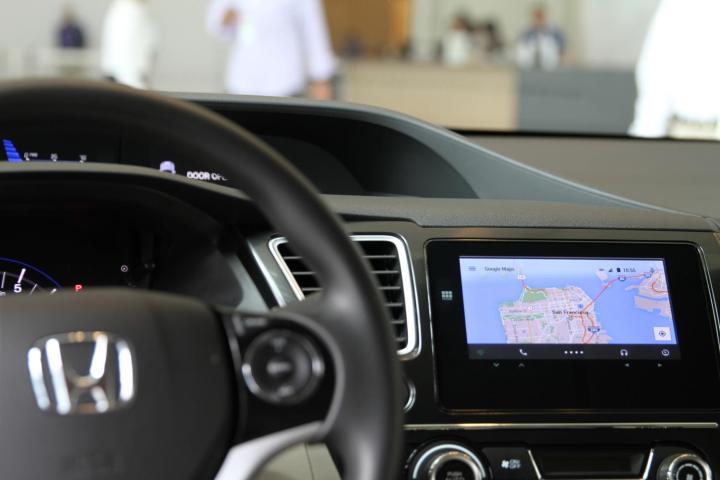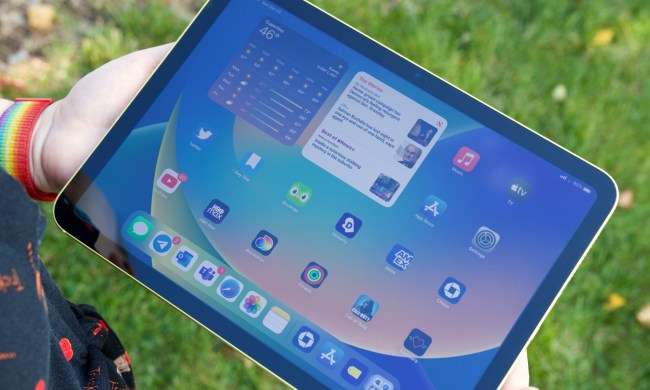

Apple may have garnered plenty of press with its plans for an assault on car dashboards, but now Google is establishing a beachhead of its own.
At the company’s I/O developer conference, Audi, General Motors, Honda, Hyundai, and Volvo announced their plans to launch Android Auto in upcoming models.
This is the first fruit of the Open Automotive Alliance, a coalition of Google, Nvidia, and the automakers begun to bring Android connectivity to the dashboard.
Making its public debut earlier today, Android Auto is essentially Google’s answer to Apple’s Carplay. Like Carplay, it’s designed to bridge the gap between smartphone and in-car infotainment system, giving users access to apps they would normally use while driving, but incorporating the car’s controls in a way designed to minimize distraction.
The system is powered by a driver’s smartphone, allowing them to “project” the same apps and functions onto a car’s infotainment system. Once a compatible phone is connected, Android Auto transfers the interface to the car. The goal is to allow drivers to use features like music, messaging, and navigation, with minimal distraction.
This will be done primarily by trading tapping and swiping for speaking. Among other things, Android Auto includes a messaging function that can read texts and e-mail, and allows the driver to dictate responses.
A car-specific version of Google Maps is also included, and the system will support third-party apps like Spotify and iHeartRadio.
Of course, you won’t have to pair your car and phone purchases. Android Auto adds a layer of Google-specific functionality on top of existing infotainment systems, so other types of phones will still be compatible with the basic system.
Volvo has already confirmed that it will offer both Android Auto and CarPlay. Apple partners General Motors, Honda, and Hyundai may follow suit.
Each carmaker should have at least one model with Android Auto on sale by the end of 2015. Specifics will have to wait until closer to the launch date, although Volvo said it will debut the system on the redesigned XC90 set to be unveiled at the 2014 Paris Motor Show this fall.


